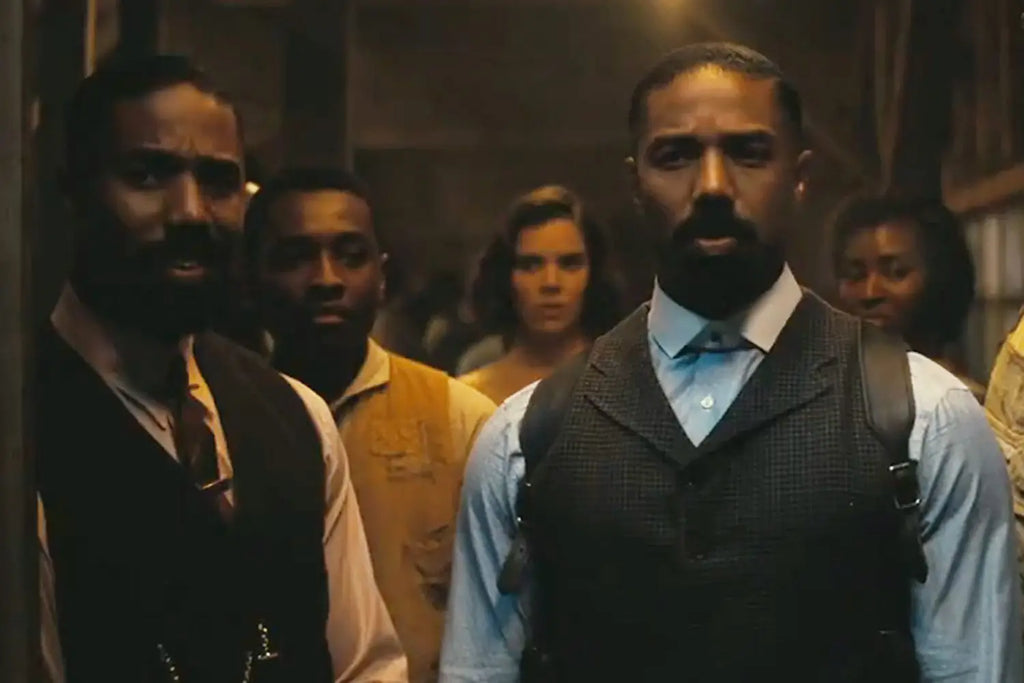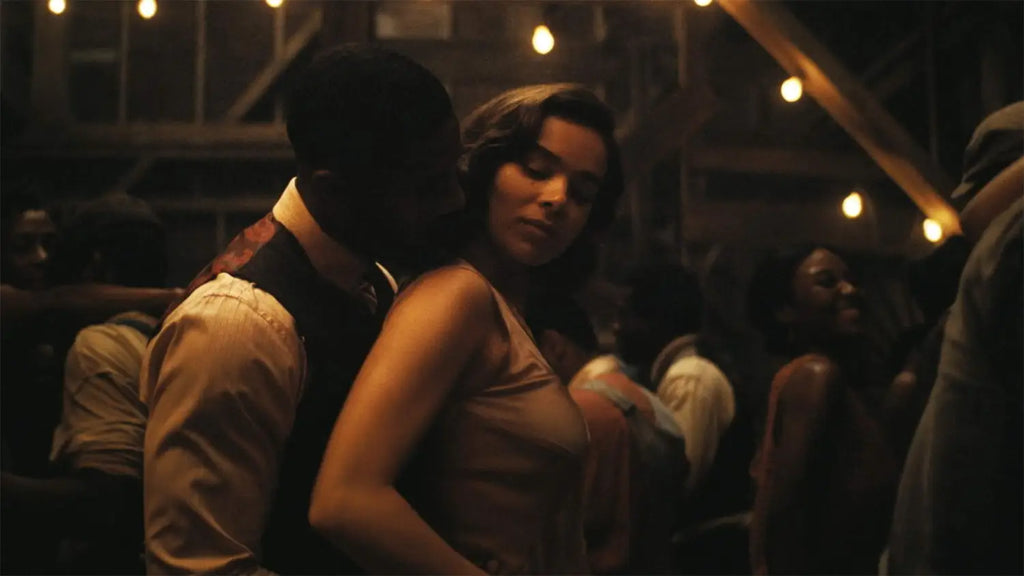Ryan Coogler has already made an undeniable impact on both Hollywood and the greater culture at large, even if his sole contribution had been Black Panther. That film was more than a massive hit - it was a cultural shift, a historical moment of representation and pride that changed the industry and inspired a generation.
But Coogler also has the mournful Black Panther: Wakanda Forever under his belt, as well as the all-too-essential Fruitvale Station, and one of the most celebrated legacy sequels ever in Creed. From the very start, Coogler has consistently delivered rousing, tear-jerking, cheer-worthy cinema on both intimate and massive franchise scales. His films center deeply human characters navigating complex emotions, often set against the backdrop of sweeping sociopolitical issues - especially the Black American experience.
Now, with Sinners, Coogler tells a story that’s wholly and unmistakably his own. Blending the bold energy of genre storytelling - specifically supernatural horror - with a potent narrative of racial oppression, cultural identity, and spiritual survival, the result is one of the most richly textured and soulfully resonant films of the year.
Longtime collaborator Michael B. Jordan steps into dual leading roles as twin brothers Smoke and Stack, and it's nothing short of an extraordinary performance. Though they look identical, Jordan imbues each brother with such distinct presence and personality that you're never confused for a moment. Stack is the more mischievous, devil-may-care sibling, always flashing a shit-eating grin and sticking a toothpick in his mouth. Smoke is his healthy opposite - stoic, grounded, responsible and level-headed. They’re two sides of the same coin, and their dynamic carries the film with lived-in warmth and volatility.

The twins return to their Southern hometown in Mississippi after a stint in Chicago, not in retreat but in resolve. As one character puts it, they’ve chosen to “deal with the devil they know,” a pointed line that speaks volumes to the myth of racial escape in America. The South may be openly hostile, but the North offers no real reprieve either. The twins come back to purchase land and host a grand event at a juke joint remodeled out of an old barn, gathering their community for one defiant night of joy, music, and dance - a celebration of heritage, of survival, and of hard-won dignity. But that joy attracts more than just neighbors. It attracts something darker. Something predatory.
What begins as a soulful period drama slowly and deliberately builds into full-blown supernatural horror, with Coogler carefully laying the groundwork for his film’s terrifying second half. When the vampires arrive - representing more than just monsters, but the metaphorical and literal forces that seek to leech off of, infect, and erase Black culture - the party becomes a battleground. The juke joint, which briefly felt like a sacred space, falls under siege. For the crime of simply wanting to be free, to dance, to drink, to be together in peace for just one night - they must be punished. Coogler’s metaphor is as clear as it is gut-wrenching: freedom is never given, and any space claimed as safe or sacred is always at risk of being stolen.
But Sinners is also about resistance. Through powerful music and spiritual connection, the community refuses to be erased. A standout mid-film dance sequence - already being hailed as the film’s signature moment - literally bends time and space as it stretches across generations, past and future. It’s breathtaking, gorgeous, and loaded with emotion, a transcendent expression of ancestral memory and cultural endurance.

Visually, Coogler and cinematographer Autumn Durald Arkapaw (Wakanda Forever, The Last Showgirl) create a mesmerizing tapestry of brown and gold hues. The Southern landscapes - particularly the cotton fields with ominous clouds rolling overhead - are at once beautiful and haunting. And when blood spills (and it certainly does), its deep red glistens like sin incarnate. The production design of the juke joint itself is stunning, a character in its own right. The film’s carefully established layout pays off later when chaos descends.
And while we’re on the subject of the music - it cannot be overstated how integral it is to the film’s power. The score, composed by Ludwig Göransson (Oppenheimer) and with a contribution from Metallica’s own Lars Ulrich (yes, really), among others, is thunderous, evocative, and unforgettable. The music shifts from swelling orchestral motifs to emotional bluesy grit to soaring electric guitar to bone-rattling, percussive dread, helping tell the story even when no words are spoken. The soundtrack’s lyrics become a second script, with lines like “act like it’s the last time for a long time” carrying a devastating weight.
Every performance here is electric. Jordan shines, but so does the entire ensemble, including Stack’s old flame Mary (Hailee Steinfeld), a white-passing woman currently grieving her mother, and Smoke’s love interest Annie (Wunmi Mosaku), a spiritually attuned woman. They are the two that the brothers left behind in pursuit of wealth and power. The community surrounding them feels fully realized, every face distinct, every relationship layered. The writing here is so strong, so rich in interpersonal texture, that you feel the stakes of every moment, long before fangs start sinking into flesh.

As horror, Sinners delivers - scary, gory, and surprisingly gnarly in its climactic sequences. The makeup effects are phenomenal, the vampires looking less like sleek gothic creatures and more like something dragged from the earth itself - twisted, corrupted, demonic versions of what they once were. It's unsettling in the best way.
Still, the film’s ambition may prove unwieldy for some. Its pacing is deliberate, and the first half’s simmering slow burn might test those hungry for nonstop vampire carnage. And with so many themes at play - freedom, cultural erasure, spiritual salvation, generational trauma - some viewers may find it too heavy-handed or overstuffed. But for those who surrender to its rhythm and let it wash over them, Sinners is a masterwork.
Ultimately, what makes Sinners so remarkable is its ability to be many things at once: a horror film, a spiritual journey, a period drama, a family story, and a deeply political statement. It’s melancholic and hopeful, tragic and triumphant. And by its end, Coogler offers a notion that freedom - true freedom - might only be attainable for fleeting moments. But even those moments matter. Even those moments can ripple through time and generations. Even a song, played once and never again, can change everything.
With Sinners, Ryan Coogler proves yet again that even the biggest movie studios can still fund genuine art. Emotional, provocative, boldly original, and brimming with style and soul, it’s one of the most impactful films of the year - and a towering achievement in an already legendary filmography. Don’t invite it in. Let it shake your soul instead.
'Sinners' is now playing in theaters.




